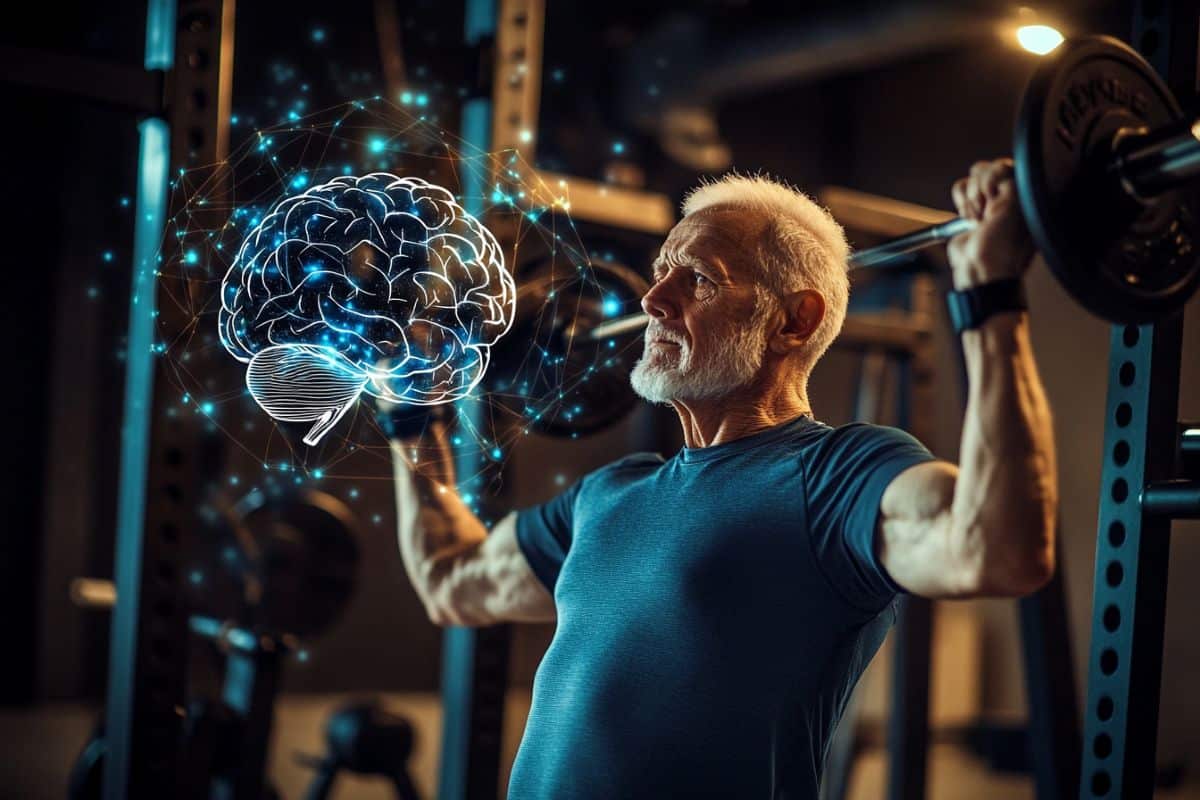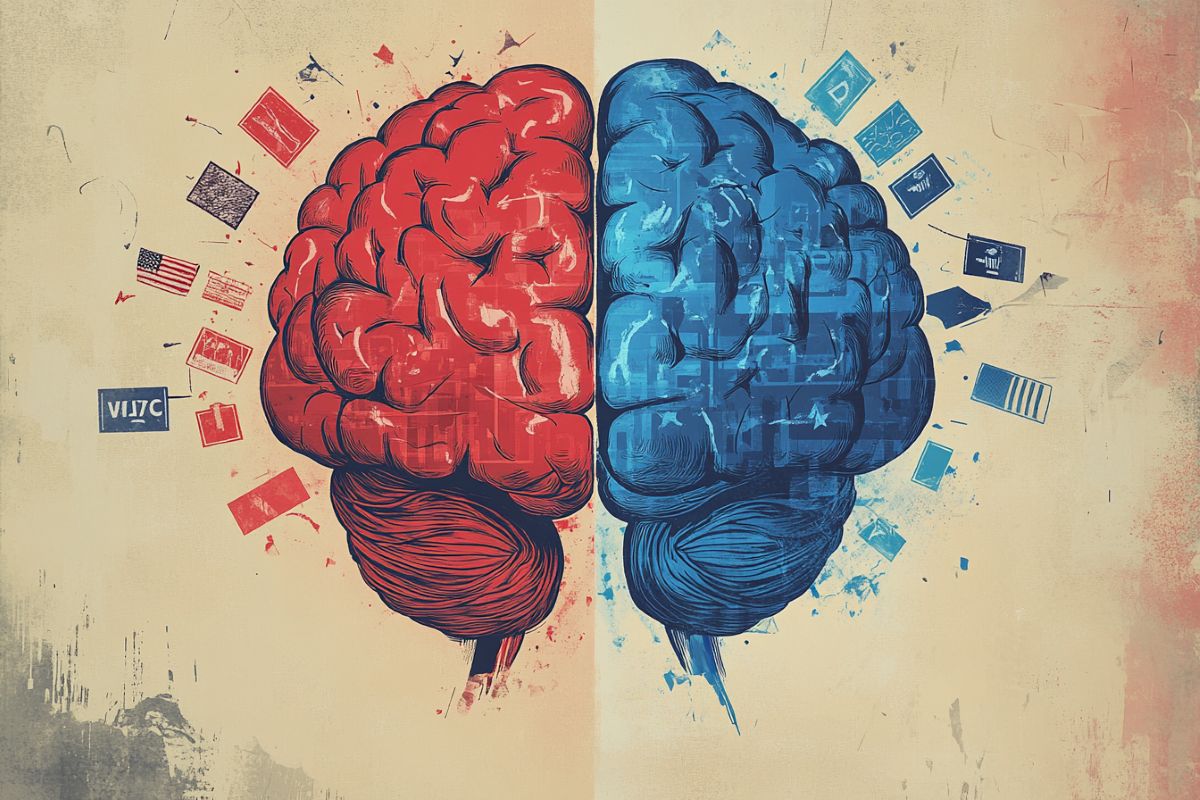Summary: A new study shows that weight training not only boosts physical strength but also protects the brains of older adults with mild cognitive impairment. After six months of twice-weekly resistance training, participants showed memory improvements and protection against brain atrophy in regions linked to Alzheimer’s disease.
MRI scans revealed preserved white matter integrity and better brain health, while the control group showed decline. These findings suggest that weight training could be a low-cost, non-pharmacological strategy to slow or even reverse early cognitive decline.
Key Facts:
- Brain Protection: Weight training preserved hippocampus and precuneus volume in at-risk individuals.
- Improved Memory: Participants had better verbal episodic memory after six months of training.
- Low-Cost Prevention: Exercise offers a cheaper, effective alternative to costly dementia drugs.
Source: FAPESP
The benefits of weight training are many: it promotes gains in strength and muscle mass, reduces body fat, and contributes to well-being and mental health.
And now a study carried out at the State University of Campinas (UNICAMP), in the state of São Paulo, Brazil, has demonstrated another important effect: it protects the brains of older people against dementia.
The results were published in the journal GeroScience.
The study involved 44 people with mild cognitive impairment – an intermediate clinical condition between normal aging and Alzheimer’s disease in which cognitive decline is greater than expected for age, indicating a higher risk of dementia. The results showed that strength training not only improved memory performance but also altered brain anatomy.
After six months of twice-weekly weight training, the participants showed protection against atrophy in the hippocampus and precuneus – brain areas associated with Alzheimer’s disease – as well as improvements in parameters that reflect the health of neurons (white matter integrity).
“We already knew that there would be physical improvement. Cognitive improvement was also imagined, but we wanted to see the effect of weight training on the brains of older people with mild cognitive impairment.
“The study showed that, fortunately, weight training is a strong ally against dementia, even for people who are already at high risk of developing it,” says Isadora Ribeiro, a FAPESP doctoral fellowship recipient at UNICAMP’s School of Medical Sciences (FCM) and first author of the article.
The work was carried out within the framework of the Brazilian Institute for Neuroscience and Neurotechnology (BRAINN) – a FAPESP Research, Innovation and Dissemination Center (RIDC) – and is the first to demonstrate what happens to the integrity of the white matter of individuals with mild cognitive impairment after weight training.
“As well as neuropsychological tests, we also performed MRI scans at the beginning and end of the study.
“These results are very important because they indicate the need to include more physical educators in the public health system at the primary health care level since increased muscle strength is associated with a reduced risk of dementia. It’s a less complex and cheaper treatment that can protect people from serious diseases,” comments Marcio Balthazar, BRAINN researcher and study supervisor.
“For example, the new anti-amyloid drugs approved in the United States indicated for the treatment of dementia and for people with mild cognitive impairment, cost around USD 30,000 a year. That’s a very high cost.
These non-pharmacological measures, as we’ve shown is the case with weight training, are effective, not only in preventing dementia but also in improving mild cognitive impairment,” the researcher adds.
Protocol
The research participants were divided into two groups: half underwent a resistance exercise program with weight training sessions twice a week, at moderate to high intensity and with progressive loads; the other half did not exercise during the study period and were part of the so-called control group.
In the analyses carried out at the end of the intervention, the volunteers who practiced weight training had better performance in verbal episodic memory, improved integrity of neurons and areas related to Alzheimer’s disease protected from atrophy, while the control group showed a worsening of brain parameters.
“A characteristic of people with mild cognitive impairment is that they have volume loss in some brain regions associated with the development of Alzheimer’s. But in the group that did strength training, the right side of the hippocampus and precuneus were protected from atrophy.
“This result justifies the importance of regular weight training, especially for older people,” Ribeiro highlights.
The researcher believes that a longer period of training could lead to even more positive results than those reported in the study.
“All the individuals in the bodybuilding group showed improvements in memory and brain anatomy. However, five of them reached the end of the study without a clinical diagnosis of mild cognitive impairment, such was their improvement.
“This leads us to imagine that longer training sessions, lasting three years, for example, could reverse this diagnosis or delay any kind of dementia progression. It’s certainly something to be hopeful about and something that needs to be studied in the future,” Ribeiro argues.
According to the researchers, weight training can protect the brain against dementia on two fronts: by stimulating the production of neural growth factor (an important protein for the growth, maintenance and survival of neurons) and by promoting global disinflammation in the body.
“Any physical exercise, whether weight training or aerobic activity, is known to increase levels of a chemical involved in brain cell growth. It can also mobilize anti-inflammatory T-cells. This is key.
“After all, the more pro-inflammatory protein that is released in the body, the greater the chance of developing dementia, accelerating the neurodegenerative process and forming dysfunctional proteins that eventually kill neurons,” Balthazar explains.
To assess these issues, the volunteers’ levels of irisin and BDNF (brain-derived neurotrophic factor) – substances whose synthesis is stimulated by muscle contraction and which are associated with neural protection and synaptic plasticity – were measured. The results are currently being analyzed.
“It’s a continuation of this study in which we’ll try to better understand how these factors are related to changes in brain anatomy. We believe that it’s a set of anti-inflammatory and neuroprotective factors that lead to these changes,” Ribeiro predicts.
About this aging, exercise, and dementia research news
Author: Heloisa Reinert
Source: FAPESP
Contact: Heloisa Reinert – FAPESP
Image: The image is credited to Neuroscience News
Original Research: Closed access.
“Resistance training protects the hippocampus and precuneus against atrophy and benefits white matter integrity in older adults with mild cognitive impairment” by Isadora Ribeiro et al. GeroScience
Abstract
Resistance training protects the hippocampus and precuneus against atrophy and benefits white matter integrity in older adults with mild cognitive impairment
Mild cognitive impairment (MCI) refers to cognitive alterations with preservation of functionality. Individuals with this diagnosis have a higher risk of developing dementia. Non-pharmacological interventions, such as physical exercise, are beneficial for the cognition of this population.
However, the impact of resistance training (RT) on the brain anatomy of older adults with MCI has not yet been clarified.
This study aimed to investigate the effects of RT on cognition and brain anatomy in MCI. Forty-four older adults with MCI, 22 in the training group and 22 in the control group, were evaluated in neuropsychological tests and magnetic resonance imaging at the beginning and end of the study, which lasted 24 weeks. We used repeated measures ANOVA.
The training group showed better performance in verbal episodic memory after intervention. The control group showed a decrease in gray matter volume in the hippocampus and precuneus, while the training group showed no reduction in the right hippocampus and precuneus.
However, it showed a decrease in the volume of these regions on the left side and in the left superior frontal gyrus. In the analysis of white matter integrity, fractional anisotropy increased in the training group and decreased in the control group.
Axial diffusivity decreased in the training group, while radial diffusivity increased in the control group, and mean diffusivity varied according to the tract evaluated.
RT improves memory performance, positively influences white matter integrity parameters, and plays a protective role against atrophy of the hippocampus and precuneus in MCI.





